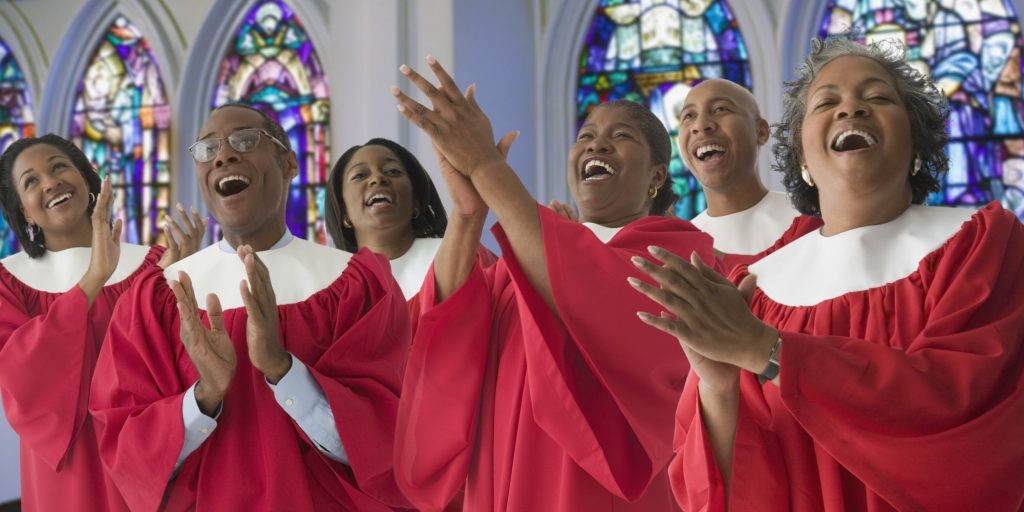Today’s hymn from Sing Praise is ‘Sing, my soul when hope is sleeping’ by John Bell and Graham Maule. Unusually for their hymns, instead of a Scottish tune the compilers of the book suggest the high Victorian ‘Cross of Jesus’ with its associations with the Crucifixion. I think John did the right thing writing his own gentler tune with minor modulating to major to reflect the theme of the hymn, which is that singing can lift us out of sadness.
The four verses each offer one of more reasons to sing, not as a response to feeling happy but to generate a mood of at least contentment, when circumstances would tempt us to despair. ‘When hope is sleeping, when faith gives way to fears, to melt the ice of sadness’; ‘when sickness lingers, to dull the sharpest pain’, when I have wandered far away from God, and ‘when light seems darkest, when night refuses rest, though death should mock the future’.
As it happens, the day before this came up in our schedule I was unexpectedly taken to hospital – nothing serious, but I was lying on a trolley for several hours waiting for a doctor to discuss the result of tests. Even though I was not in physical pain, I found that in the confusion, the not-knowing, the sounds of the pain of other patients, singing hymns and the evening prayer canticles from memory (under my breath, not aloud) was a way of coping.
